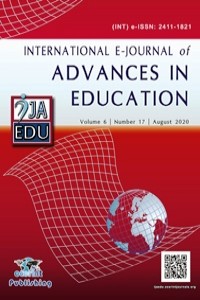Abstract
The education sector has already embraced the new generation of technology and started working towards the enhancement of various teaching and learning strategies. With the involvement of various e-tools, teaching and learning process is reaching its next level of implementation. At present, almost every educational establishment is working on implementing various e-resources on their own Virtual Learning Environment. Some of these are even cloud-based and hence enable the end-users (teachers and students), to access the e-resources and collaborate in-class activities even from remote locations. When it comes to group assessments, various collaborative tools come into the picture. Many educational organizations allow their students to access social media platform such as Facebook etc and conduct collaborative exercises on it. One of the critical aspects of enhancing learning through social networks is the fact that distance or off-campus students are limited from meeting with their teachers and addressing them face-to-face. However, both on-campus and off-campus students do have a Facebook account, thus breaking the distance barrier between students and teachers. By using Facebook chat, students can communicate in real-time with each other or with their lecturers. Other such platforms include Microsoft Kaizala, which is becoming popular during these days since it doesn’t require the participants to share their private accounts or mobile numbers in order to do an online collaboration for academic purpose. This research paper contains a study of various online collaborative tools, their pros and cons, recommendations for usage and implementation. Finally, the authors will reflect on their studies and suggest various ways of implementations for different purpose and nature of assessments, in order to cover the learning outcomes of the session.
Keywords
Smart education e-resources online learning, education technology, social media for education
References
- Barnes, K. Marateo, R. C. & Ferris, S. P. (2007). Teaching and learning with the Net Generation. Innovate Journal of Online Education, 3(4).
- Ryan, T. & Xenos, S. (2011). Who uses Facebook? An investigation into the relationship between the Big Five, shyness, narcissism, loneliness, and Facebook usage. Computers in Human Behavior.
Abstract
References
- Barnes, K. Marateo, R. C. & Ferris, S. P. (2007). Teaching and learning with the Net Generation. Innovate Journal of Online Education, 3(4).
- Ryan, T. & Xenos, S. (2011). Who uses Facebook? An investigation into the relationship between the Big Five, shyness, narcissism, loneliness, and Facebook usage. Computers in Human Behavior.
Details
| Primary Language | English |
|---|---|
| Subjects | Other Fields of Education |
| Journal Section | Articles |
| Authors | |
| Publication Date | September 14, 2020 |
| Submission Date | June 2, 2020 |
| Published in Issue | Year 2020 Volume: 6 Issue: 17 |
Cited By
HTML5 BASED E-LEARNING AUTHORING TO FACILITATE INTERACTIVE LEARNING DURING COVID-19 PANDEMIC: A REVIEW
IJAEDU- International E-Journal of Advances in Education
Vıkas Rao NAIDU
https://doi.org/10.18768/ijaedu.964863
PROPOSED E-LEARNING FRAMEWORK FOR SPECIAL NEED STUDENTS IN HIGHER EDUCATION INSTITUTIONS
IJAEDU- International E-Journal of Advances in Education
Nethra VAİDHYANATHAN
https://doi.org/10.18768/ijaedu.969714
A Study on Learning Strategies and Styles Segmentation of Learner Groups in Online Education Platforms
Applied Mathematics and Nonlinear Sciences
https://doi.org/10.2478/amns-2024-2200
Challenges and Opportunities of Digital Learning: Pedagogical Approaches in Higher Business Education
GATR Global Journal of Business Social Sciences Review
https://doi.org/10.35609/gjbssr.2024.12.4(2)
Published and Sponsored by OCERINT International © 2015 - 2025
Contact: ijaedujournal@hotmail.com
International E-Journal of Advances in Education by IJAEDU is licensed under a Creative Commons Attribution-NonCommercial 4.0 International License. Permissions beyond the scope of this license may be available at http://ijaedu.ocerintjournals.org


